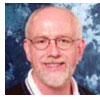STEM or STEAM, Let's Not Get Steamed Up
Over it!
 Recently, with all the emphasis on STEM (Science, Technology, Engineering and Math), some folks have been complaining about the absence of attention to Arts. They say, why not STEAM, Science, Technology, Engineering, Arts and Math. I agree, but it does not take Herculean efforts to get there. We are already there! Recently, with all the emphasis on STEM (Science, Technology, Engineering and Math), some folks have been complaining about the absence of attention to Arts. They say, why not STEAM, Science, Technology, Engineering, Arts and Math. I agree, but it does not take Herculean efforts to get there. We are already there!
First of all, let’s look at one of the greatest scientists ever. Leonardo Da Vinci. The exemplary Renaissance man, he is first known as a transformative painter. And musician. And sculptor. But he was also a path-breaking scientist and engineer and inventor. Art and science and math and engineering all went hand in hand. Da Vinci was STEAM, through and through. He remains an ‘existence proof’ that STEAM is not only possible, but most likely preferred. Read more.
NGSS "Practices" Dimension Requires Teacher Mindset Shift
 MIT BLOSSOMS is working with a group of Massachusetts science teachers to develop new BLOSSOMS lessons that will demonstrate the adoption of NGSS Science and Engineering Practices into science teaching. Therefore, it has been important for us to try to break down just what is meant and required by this new emphasis on “practices.” MIT BLOSSOMS is working with a group of Massachusetts science teachers to develop new BLOSSOMS lessons that will demonstrate the adoption of NGSS Science and Engineering Practices into science teaching. Therefore, it has been important for us to try to break down just what is meant and required by this new emphasis on “practices.”
The Science and Engineering Practices incorporate much of what has been thought of as “inquiry”, but go on to elaborate just how to engage in the work of inquiry and emphasize how this work is part of building knowledge. These practices reflect a commitment to “figuring out,” and characterize how learners build knowledge by posing questions, designing investigations, building explanations and models of findings, and engaging in argumentation to conduct comparisons of competing ideas and reach consensus. Read more. |
 |
Magic Happens in Afterschool STEM Mentoring Program!
 Engage in STEM (E-STEM) was launched in 2011 in the Everett Public Schools, and is a partnership of the Massachusetts Academy of Sciences (MAS) and the Massachusetts State Science & Engineering Fair (MSSEF). Undergraduate STEM majors traveled to Everett to help students in 6th – 12th grade dream up, design, and carry out their science fair projects. These projects were then entered into various science fairs across the state. STEM teachers in the district were offered free access to the professional development courses presented by the Curious Minds Initiative, an extraordinary plan developed by MSSEF that aims to engage every Massachusetts middle and high school student in Massachusetts in inquiry-based learning and the excitement of the discovery process. Read more. Engage in STEM (E-STEM) was launched in 2011 in the Everett Public Schools, and is a partnership of the Massachusetts Academy of Sciences (MAS) and the Massachusetts State Science & Engineering Fair (MSSEF). Undergraduate STEM majors traveled to Everett to help students in 6th – 12th grade dream up, design, and carry out their science fair projects. These projects were then entered into various science fairs across the state. STEM teachers in the district were offered free access to the professional development courses presented by the Curious Minds Initiative, an extraordinary plan developed by MSSEF that aims to engage every Massachusetts middle and high school student in Massachusetts in inquiry-based learning and the excitement of the discovery process. Read more.
What Are You Curious About? An Exciting New Science Service Sparticl
 For those unfamiliar with sparticles, think S (as in Science), add particle, drop the “e” (but not the Engineering), end with a “.org” and you will find yourself at a new web and mobile service designed to excite teenagers (and adults like me) about science. Even their graphic is stimulating, representing the supersymmetric particle, well beyond my education as a low temperature physicist. For those unfamiliar with sparticles, think S (as in Science), add particle, drop the “e” (but not the Engineering), end with a “.org” and you will find yourself at a new web and mobile service designed to excite teenagers (and adults like me) about science. Even their graphic is stimulating, representing the supersymmetric particle, well beyond my education as a low temperature physicist.
So what’s new and different here? Sparticl is a collector and distributor of information, not a direct source of it. Each day new information appears on the front page to explore. Have an item of specific interest or maybe an assignment? Just answer the question “What are you curious about?” and you’ll quickly see the wealth of information that is available to you through links – videos, articles, games – media of all sorts that will educate and make you a near expert in no time. Read more. |